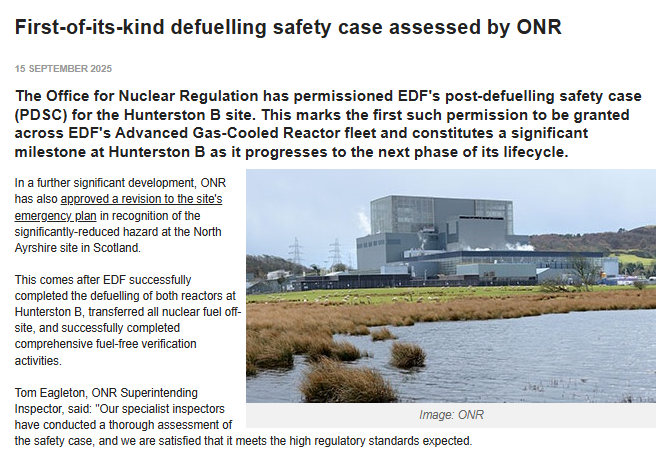
For Americans considering a long-term move abroad, cross-border financial planning is a necessary step.
Tax status, account access and reporting rules change with residency, leaving U.S. citizens facing complex reporting requirements even once they’re established.
Early deliberate planning prevents missteps that can be expensive and time-consuming to correct.
The first meeting with someone you’re considering to be your new cross-border financial planner is critical. This professional will provide you with a new framework for thinking about investments, cash flow and compliance in a cross-border context.
Kiplinger’s Adviser Intel, formerly known as Building Wealth, is a curated network of trusted financial professionals who share expert insights on wealth building and preservation. Contributors, including fiduciary financial planners, wealth managers, CEOs and attorneys, provide actionable advice about retirement planning, estate planning, tax strategies and more. Experts are invited to contribute and do not pay to be included, so you can trust their advice is honest and valuable.
While digesting this new framework can be challenging, money is only part of the picture.
Making the choice to relocate abroad is deeply personal. The difference in one person’s rationale from another’s underscores the need for a client-adviser relationship rooted in empathy for the immigrant experience, in addition to strong cross-border planning competencies.
Why cross-border planning is different
Cross-border financial planning requires evaluating and adapting your current financial plan for a new international context. If you don’t have a plan, you should create one with all the particulars of your situation.
For U.S. citizens and residents, worldwide income remains taxable even when you move abroad, and foreign assets could trigger extra filings.
Some are straightforward, such as the Foreign Bank Account Report (FBAR), while others, such as a Passive Foreign Investment Company (PFIC), are less so.
Where they exist, bilateral tax treaties and Social Security totalization agreements determine how income and contributions are allocated between countries.
Investment choices can also be constrained, as many non-U.S. funds are treated as PFICs under U.S. law. A first meeting with your potential adviser should:
Focus on mapping these rules to the facts of your situation before discussing tactics
Determine whether you plan to move and are speaking in hypotheticals, or are already abroad and speaking in actualities
This will heavily influence the content of the conversation.
Building your cross-border plan (and why early planning matters)
A first meeting should feel welcoming and substantive. Thoughtful planners typically begin with a few open-ended questions, then listen. My two go-to questions:
Where are you planning to move and why?
What does your ideal day-to-day life look like in your new home?
More Americans — young professionals, couples, families — are relocating for lifestyle more than work. That shift creates planning needs that are distinct from those of older Americans who might be relocating abroad for retirement.
A cross-border planner should help you see how the relocation puzzle fits together so advice is lawful, tax-efficient and timed correctly.
Early planning avoids costly do-overs (for example, triggering avoidable tax tripwires, vesting equity after a residency shift or opening the wrong type of account).
Topics that regularly arise include:
Residency and timeline. Current status (you plan to move abroad, or are already living abroad), visa path and the dates that drive tax residency.
Income and employment. Salary, self-employment, contractor status and equity compensation (restricted stock units/stock options) with planned vesting or sales.
Social insurance and pensions. U.S. Social Security vs foreign systems and whether a totalization agreement applies.
Accounts and reporting. Where bank/brokerage/retirement accounts are held and whether balances trigger Foreign Account Tax Compliance Act (FATCA) and/or FBAR.
Business ownership. Entity type, where formed and whether restructuring pre- or post-move reduces complexity/improves your global tax position.
Real estate. Primary vs rental property, mortgages and potential capital-gains treatment under each country’s rules.
Insurance and benefits. Health, life, disability — what continues abroad and what must be replaced.
Family and estate basics. Marital/partnership status, dependents, beneficiary designations and cross-border estate/tax issues.
Currency and banking. Cash buffers, transfer rails and foreign exchange exposure aligned to near-term expenses.
Goals and priorities. What “success” looks like (for example, retire in Lisbon at 58, buy in two years, start a business next spring).
The first meeting agenda: What typically happens
Clarify goals and timing. What is likely in the next six to 18 months vs the next decade?
Map tax residency. Where you’re considered a tax resident now, where you might become a resident and the dates that flip the switch.
Profile cash flow and accounts by jurisdiction. Income sources, withholdings and which accounts are reportable.
Set expectations and next steps. If there’s mutual fit and alignment, you’ll receive an informational survey to capture the detailed data needed to build your cross-border plan.
Looking for expert tips to grow and preserve your wealth? Sign up for Adviser Intel (formerly known as Building Wealth), our free, twice-weekly newsletter.
Note: Some elements are informed by this discussion but are delivered formally in the written proposal after the call (more on that below): risk/investment alignment, scope and licensing and data handling.
How your planner coordinates with other pros
Expect collaboration with a cross-border tax professional, immigration attorney and — when appropriate — an estate lawyer or benefits specialist.
It should be clear to you who leads which workstream, how information flows and why you’re being introduced to certain professionals.
Good coordination prevents, for example, moving abroad before you’ve addressed the issue of tax domicile and find yourself liable for double taxation.
Red flags to avoid:
Promises of investment returns or guaranteed tax outcomes
Generic recommendations for other professionals or services
Reluctance to acknowledge fiduciary duty or disclose conflicts
Lack of clarity around the fee schedule and privacy practices
Emphasis on retaining the current relationship without consideration of how its evolution may be in your, the client’s, the best interests
Do a quick background check before you book. Useful directories include:
SEC Investment Adviser Public Disclosure
FINRA BrokerCheck
CFP® Board “Find a CFP® Professional”
IRS Directory of Preparers with Credentials
Additionally, it’s a good sign if a cross-border financial planner focuses on specific countries and can demonstrate a client base and professional network (e.g., good-faith recommendations of local tax providers, cross-border tax specialists, etc.), also specialized in the country you’re planning to move to.
What you should learn
You should leave the first meeting reassured that a long-term move abroad is achievable and with a clear understanding of what goes into creating and executing your plan. Concretely, expect:
A concise recap of goals, facts gathered and the planning areas that matter most
An informational intake form designed to collect information needed to build your proposal
A written proposal (or the timetable to receive it) for your review and approval, reflecting your survey responses
A scheduled follow-up meeting to walk through the proposal, refine the scope and confirm an engagement so implementation can begin
Five thoughtful questions to ask
How do you stay current on both U.S. rules and the host country’s rules?
How do you think about, evaluate and manage currency risk in an international context?
Are you legally obligated to act in my best interests (for example, as a fiduciary)?
How will you coordinate with my tax and immigration counsel?
What is your fee structure?
With careful planning, a qualified financial adviser can guide you abroad, confident in your long-term financial plan and security.
Considerations for Americans Who Want to Move to Europe
Don’t Miss These Four Tax Breaks for Americans Living Abroad in 2025
I’m an Estate Planner: Moving Family Assets to a Safe Haven Abroad Could Be a Huge Headache for Your Heirs
Semi-Retiring Abroad: How to Make Your Living Overseas Dream a Reality
How To Manage Retirement Savings When Living Abroad



